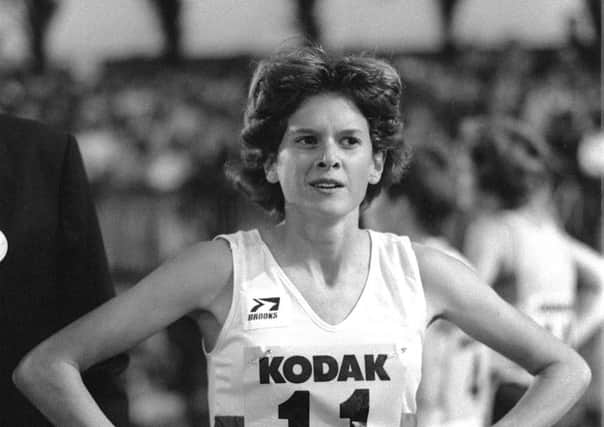Foreign Office and Home Office rift over Budd


In early 1984 the mercurial teenager was regarded as a running sensation, setting a world record for the 5,000m at the tender age of 17.
But athletics authorities refused to recognise her feat as South Africa was excluded from international competition because of its apartheid policy.
Advertisement
Hide AdAdvertisement
Hide AdIn an effort to circumvent the sporting boycott, the Daily Mail encouraged Budd’s father to urge her to apply for British citizenship, by virtue of her paternal grandfather being British, so she could compete at the 1984 Los Angeles Olympics.
But behind the scenes there were serious concerns that pushing through her application would lead to accusations she was being singled out for special treatment, that the government was being “railroaded” and that such a move would undermine Britain’s anti-apartheid stance.
Previously unseen files, released by the National Archives at Kew, west London, reveal wrangling over the Budd affair went all the way up to secretary of state level, with letters from then-foreign secretary Geoffrey Howe to home secretary Leon Brittan – and copied to prime minister Margaret Thatcher – showing his thinly veiled frustration.
A draft letter from Mr Howe to Mr Brittan in March 1984 said: “I think the consequences for the Government could be very damaging if we laid ourselves open to the charge that this young girl was receiving special treatment, gifted and exceptional though she may be.”
Advertisement
Hide AdAdvertisement
Hide AdThe letter warned the move could lead to possible withdrawals by other nations from the Olympic Games and the 1986 Edinburgh Commonwealth Games, and suggested it would undermine the Gleneagles agreement, a Commonwealth pact discouraging sporting contact with South Africa.
It added: “To give exceptional treatment to a South African national to enable her to avoid the sporting restrictions inflicted on her country and compete for Britain in the Olympics will be seen as a cynical move which will undermine that good faith.
“We will be open to charges by South Africa of double standards and duplicity.”
The file reveals a raft of concerns from the Foreign Office about the case, with officials in South Africa being inundated with immigration inquiries from other people with similar claims on citizenship to Budd.
Advertisement
Hide AdAdvertisement
Hide AdOther documents underlined the sticky situation the government had landed itself in, with the risk of it being portrayed as an “unfeeling bureaucracy crushing a unique talent” if any obstacles stopped her running for Britain on the one hand, while being seen as employing a “device to circumvent anti-apartheid politics” if it helped her gain citizenship.
Budd registered as a British citizen in April 1984, receiving a passport, and eventually ran for Great Britain in the 3,000m in Los Angeles – where she tangled with the American Mary Decker in one of the most famous moments in Olympic history.